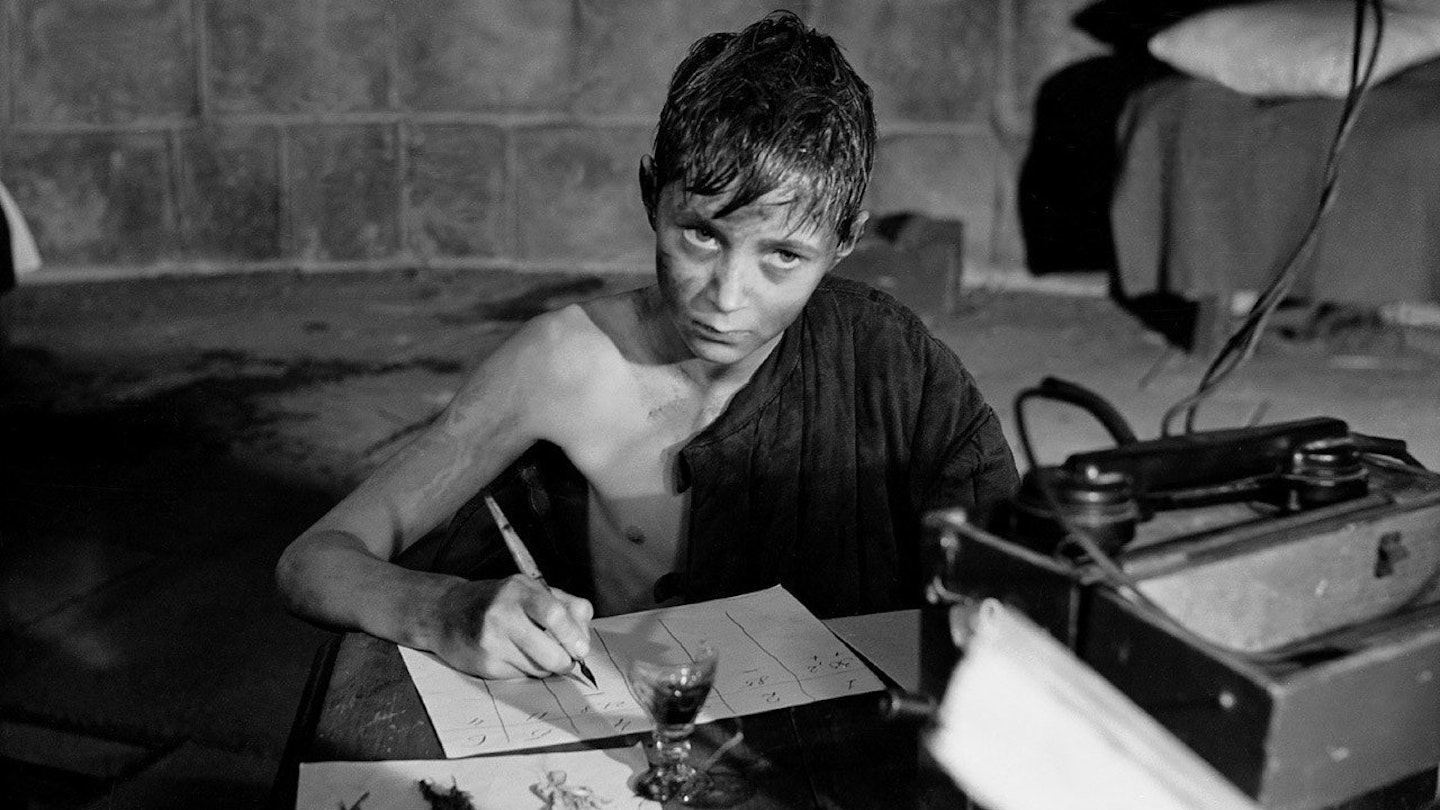Andrei Tarkovsky’s debut feature is an oblique, poetic, monochrome war film, very Russian in its melancholia and humanism, implicitly patriotic if only because the barely-seen Nazis are the ones committing all the atrocities, and memorable for its expressionist, Night of the Hunter swampland feel.
Tarkovsky throws in magical dream memories of motherhood, playing on the beach and sunshine, but Ivan’s waking war is all dark shadows, cringing underground or in trenches and people retreating into nervy quiet, leaving without saying goodbye, as afraid of making human connections and losing people. There’s no on-screen action, though the final mission is a suspenseful affair in a marsh, as officers try to retrieve the bodies of scouts killed and put on display while under fire.
Tarkovsky has a knack for memorable bits of business: the showoff officer straddling a trench while hugging a reticent nurse whose legs dangle over the abyss, the recaptured records office with the air full of ash from burned papers, Ivan’s displays of stubborn mood, a graffito begging for revenge illuminated by a torchlight-circle. The insertion of newsreel footage of Goebbels’ dead daughters and other Nazis in defeat towards the end is jarring, but perhaps needed for the quiet final kick, which goes beyond the particularity of this story to convey the tragedy of a whole generation killed off before we catch Ivan in a flashback beach idyll which might also be some sort of afterlife.
